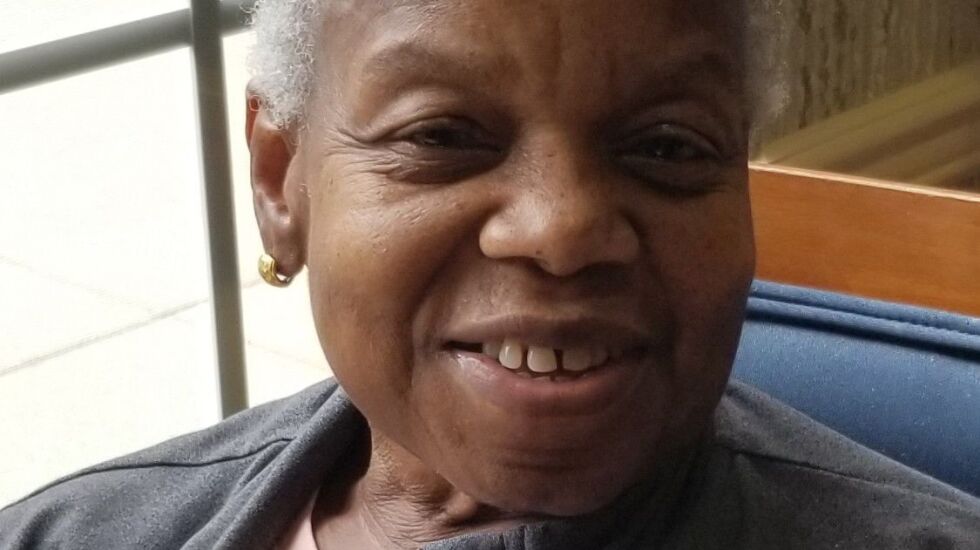
A former Chicago banking executive was charged Friday with swindling her elderly clients out of nearly $1.5 million by using her influence to persuade them to invest in her private side deals producing movies.
Helen Grace Caldwell, 58, a wealth adviser who until 2021 was a vice president in the South Michigan Avenue offices of Citibank, was charged with wire fraud by the U.S. attorney’s office in Chicago.
Contacted Friday, Caldwell’s attorney said she intends to plead guilty.
“My client has taken responsibility and we’ve reached an agreement with the government as to a disposition,” attorney Steven Rosenberg said.
He would not discuss any details, including possible financial restitution or penalties.
Wire fraud carries a maximum prison sentence of up to 20 years.
Caldwell’s case was detailed in an Injustice Watch series also published by the Chicago Sun-Times in August that described gaping holes in Illinois’ safety net intended to thwart a skyrocketing number of fraud cases targeting the old and frail.
According to the charging documents filed Friday by acting U.S. Attorney Morris Pasqual, Caldwell persuaded her Citi clients to invest in horror movies being produced and promoted by her movie company, Canal Productions LLC. According to the charges, each would share in the profits.
“In fact, as defendant knew, those representations were false because defendant intended to misappropriate, and did misappropriate, those proceeds for personal purposes,” the charging documents say.
Neither the victims nor Citi were named in the charging documents, which referred only to victims A, B, and C and bank A.
In separate federal actions late last year, Caldwell was barred from working in the securities industry by the U.S. Financial Industry Regulatory Authority and prohibited from working in banking by the federal Office of the Comptroller of the Currency.
Also, Caldwell and Citi were sued by Cook County Public Guardian Charles Golbert, who accused the Fortune 500 company of ailing to adequately police Caldwell’s conflicts of interest.

Golbert’s office wants the banking giant to repay the savings lost by Priscilla Eddings, one of Caldwell’s older clients who is now living in a nursing home with dementia.
“I’m pleased that criminal charges have been brought against Caldwell,” Golbert said. ”Hopefully, the criminal charges will prod Citibank into repaying Ms. Eddings the money that their employee stole from her and the other victims.”

Citibank and Citi Global — the banking and investment arms of Citi for which Caldwell worked as a “dual hat” employee — would not comment Friday.
In court filings, Citi lawyers have said the bank shouldn’t be held financially liable for Caldwell’s actions.
According to internal government documents, Citi first reported Caldwell to the Adult Protective Services division of the Illinois Department on Aging in March 2022 — four months after Caldwell left her job there.
State officials didn’t take action because the client “was not being exploited by a family member, roommate, or caregiver,” Citi wrote in Cook County probate court documents.
Since publication of the Injustice Watch investigation, Gov. J.B. Pritzker signed a law to exempt the Department on Aging from investigating cases of frauds and criminal activity by strangers. The law shifts the burden of investigating such frauds to the Illinois attorney general’s office.
Several experts said Illinois’ new law, which took effect on Jan. 1, represents a step backward in fighting the growing problem of elder financial exploitation.
The new law was written “to help certain people in the bureaucracy to do less work, to the detriment of the public,” McHenry County State’s Attorney Patrick Kenneally said. “I don’t see it furthers the interests of any single person that might be victimized by this crime.”
Fraud against older Americans in investment schemes accounted for nearly one-third of $3.1 billion in elder financial exploitation nationwide last year, up from less than 10% just three years ago, according to FBI data. Reported losses from investment scams against older Americans have increased tenfold in the past three years, to nearly $1 billion in 2022.
READ THE CHARGES
READ MORE









